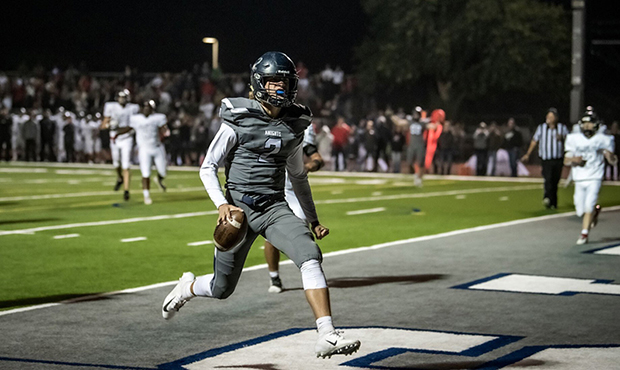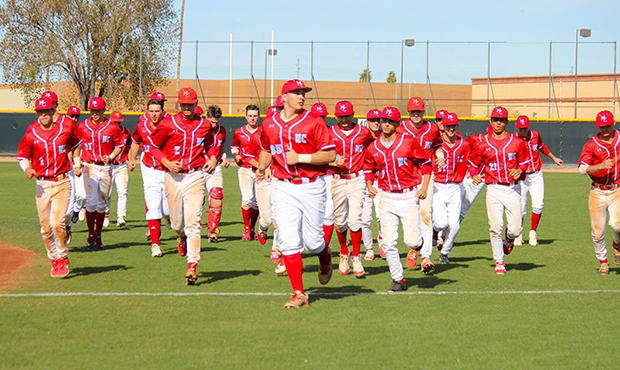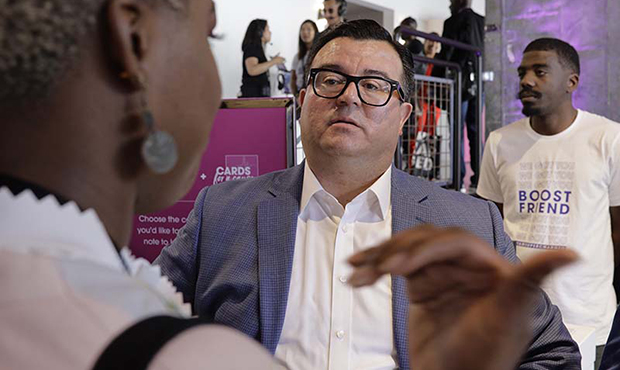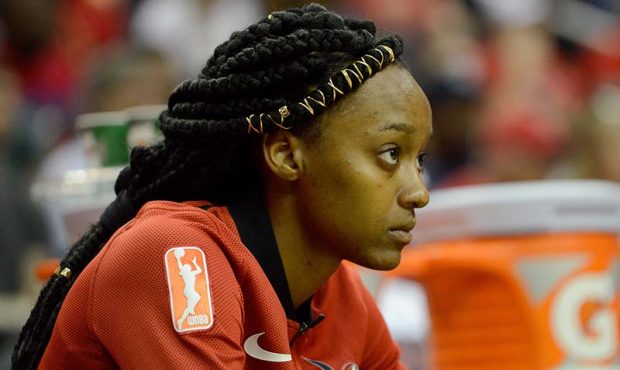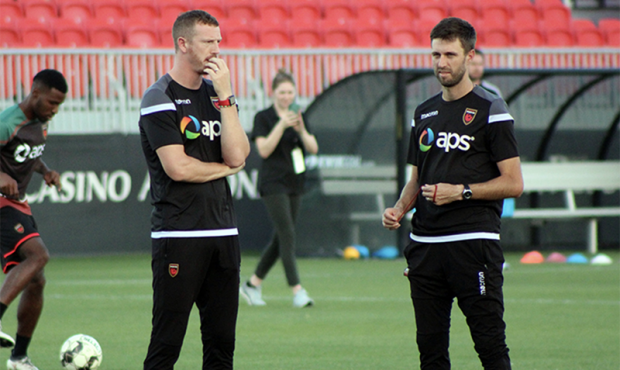Economic impact of the Valley’s big sporting event run? Try $1.3 billion
Feb 16, 2018, 4:28 PM
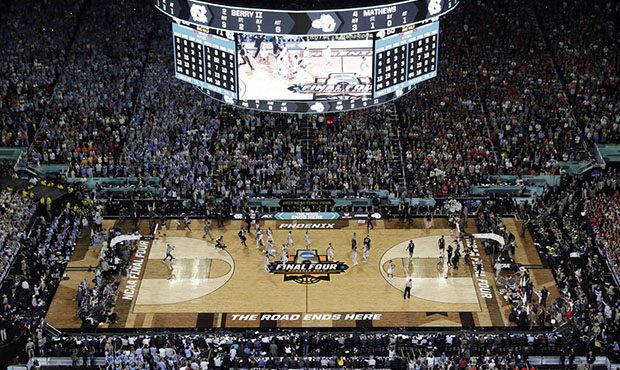
North Carolina players celebrate after the finals of the Final Four NCAA college basketball tournament against Gonzaga, Monday, April 3, 2017, in Glendale, Ariz. North Carolina won 71-65. (AP Photo/Morry Gash)
(AP Photo/Morry Gash)
PHOENIX — National sports fans are used to seeing images of Arizona’s beautiful weather and breathtaking landscapes on their televisions.
During the past three years, the state has hosted some of the biggest events in sports, and the exposure and impact generated by those events is significant, with dollar figures reaching into the billions.
The greater Phoenix area hosted the Super Bowl, College Football Playoff National Championship and the Final Four in consecutive years. The three events brought in a combined $1.3 billion back to the state of Arizona.
Last Friday, a panel was put together to speak about the economic impact sports have on a city, particularly the three major events the Valley recently hosted.
The panel was composed of Arizona Office of Tourism Director Debbie Johnson; Steve Patterson, CEO of the Arizona Coyotes; Mark Miles, CEO of IndyCar Racing; and Greg Ballard, the Mayor of Indianapolis who was the chair of the Super Bowl committee there.
Each event brought back millions to the state, and also increased from previous years the Valley hosted.
The economic impact from the Super Bowl in 2015 was $719.4 million, which was a 30 percent increase from when the city hosted in 2008.
The College Football National Championship brought in $273.6 million to the state, compared to the $205.5 million it brought in back in 2011.
Last year, the Phoenix metropolitan area hosted its first Final Four, making $324.5 million in economic impact and $11.7 million in tax revenue alone.
The out-of-town visitors for these events bring immediate impact to the state’s economy.
For the 2017 Final Four, the average out-of-town visitor stayed more than four days and spent $487 each day during their visit.
A visitor who didn’t have a ticket to the 2016 College Football National Championship Game, spent, on average, $523.96 per day.
For those who did have a ticket, an average of $467.93 per day was spent.
But, to Johnson, it is not all about the immediate impact.
“It’s about that long-term impact when people are watching sporting events at PIR (Phoenix International Raceway, now ISM Raceway), or the Super Bowl, or the Final Four, those folks are looking at Arizona and looking at our sunshine.”
Johnson told a story of when she came to Phoenix in 1985 for an annual NASCAR race at what then still was called PlR.
Johnson was living in Wyoming at the time and was in awe of the sunshine and how special Arizona was.
When she flew back into Denver and noticed the freeways were closed because of snow, she made the decision right then and there that she was moving to Phoenix.
A year later she became a resident of Arizona and has never moved since.
These are stories Johnson hears all the time, and these types of events help bring people to Arizona.
To Johnson these events were “advertising we couldn’t buy.”
When people see those images on their TV Johnson believes that it makes people want to come to Arizona.
“Sports is a huge part in what we do,” she said. “We invest in sports; we believe in sports.”
Unfortunately, Arizona is not scheduled to host a major championship in the near future.
Phoenix will be eligible to bid in 2022 for the Super Bowl and the Final Four, and in 2024 for the College Football National Championship.
Last year, the Office of Tourism conducted a pole that resulted in more than 90 percent of local residents expressing a desire for the Valley to host such events again.
“That tells you something about what you do; that you had a positive impact not just on the visitors, not on the people watching around the world, but on the people who live in the destination,” Johnson said.
For now, upcoming big events will be going through the likes of Los Angeles and Atlanta and then back through traditional sites such as New Orleans and Miami.
After that, Phoenix will get its crack once again.

